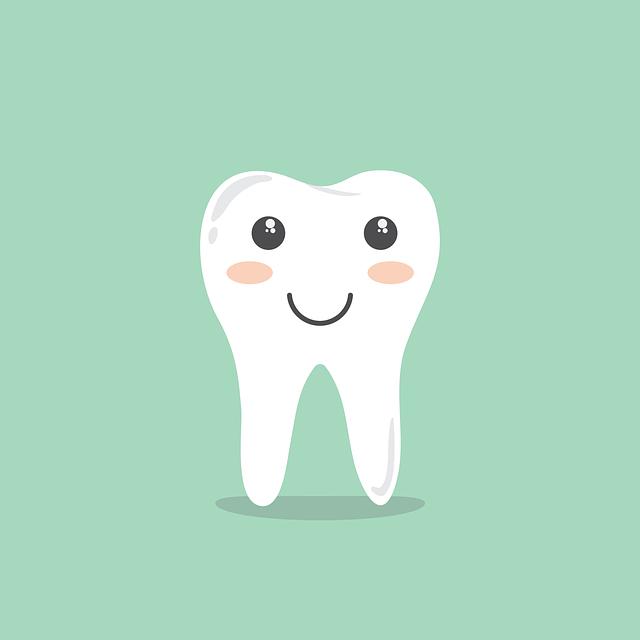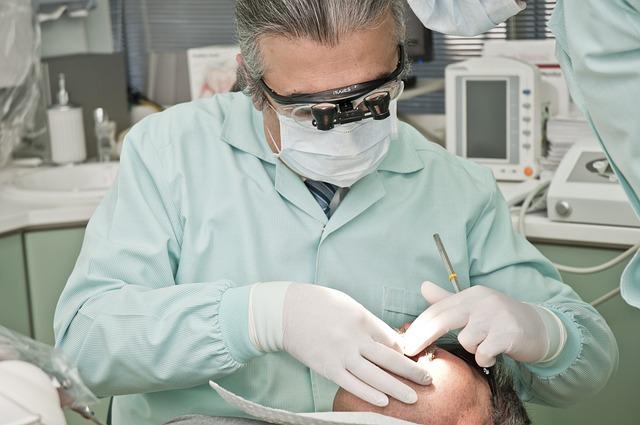Is Salt Good for Gums and Teeth: Expert Insights
Salt has been a staple in our kitchens for centuries, adding flavor and enhancing our culinary creations. But did you know that this humble mineral could potentially be good for more than just seasoning our meals? From ancient remedies to modern dental care, the benefits of salt for our gums and teeth have long been debated. Today, we delve into the topic, seeking expert insights to uncover the truth behind whether salt truly deserves a place in our oral hygiene routine. So, put on your thinking caps and prepare to explore the fascinating world of salt and its potential impact on our dental health.
1. The Role of Salt in Dental Health: Unveiling Expert Insights
The role of salt in dental health is a topic that has garnered significant attention from experts in the field. By unveiling their insights, we can gain a deeper understanding of the impact that salt has on our oral well-being. Here are some key points to consider:
- Prevention of tooth decay: Saltwater rinses have long been recommended by dental professionals for their ability to prevent tooth decay. The salt in the solution helps to neutralize acids in the mouth, reducing the risk of cavities.
- Antibacterial properties: Salt has natural antibacterial properties, making it an effective tool in fighting oral infections. Saltwater rinses can help reduce inflammation and promote healing in cases of gum disease or mouth ulcers.
- Oral hygiene maintenance: Salt can be used as an ingredient in toothpaste or mouthwash to enhance oral hygiene. Its abrasive nature helps remove plaque and stains from the teeth, providing a refreshing and cleansing effect.
While salt can be beneficial for dental health when used appropriately, it’s important to note that excessive consumption or misuse can have adverse effects. Consulting with a dental professional is always wise to ensure that salt is incorporated into your oral care routine in a safe and effective manner.
2. Debunking Myths: Evaluating the Impact of Salt on Gums and Teeth
When it comes to oral health, there are many myths and misconceptions floating around. One common belief is that consuming too much salt can have a negative impact on our gums and teeth. However, it’s time to debunk this myth and evaluate the actual impact of salt on our oral health.
1. Salt doesn’t directly cause gum disease: Contrary to popular belief, consuming salt in moderate amounts does not directly lead to gum disease. Gum disease is primarily caused by poor oral hygiene, plaque buildup, and bacteria. While excessive salt intake can contribute to certain health issues, it is not directly responsible for gum disease.
2. Salt can have a temporary impact on tooth enamel: Salt is a natural abrasive and can potentially wear away tooth enamel if used in excessive amounts or in a highly concentrated form. However, the salt content in the average diet is unlikely to cause significant damage to tooth enamel.
3. Saltwater rinses can be beneficial: Saltwater rinses have been used for centuries to alleviate oral health issues. Salt has natural antibacterial properties and can help reduce inflammation and promote healing in the gums. However, it’s important to use a proper ratio of salt to water and not rely solely on saltwater rinses as a substitute for regular oral hygiene practices.
By debunking these myths, we can better understand the impact of salt on our gums and teeth. Remember, maintaining good oral hygiene practices, such as regular brushing, flossing, and dental check-ups, is crucial for a healthy smile.

3. Understanding Salt’s Potential Benefits for Dental Care: Expert Opinions
Salt has long been recognized for its potential benefits in dental care. Experts have weighed in on the numerous advantages that salt can offer in maintaining oral health. Here are some key insights from dental professionals:
1. Effective antibacterial properties: Salt has natural antibacterial properties that can help combat harmful bacteria in the mouth. It can act as a powerful disinfectant, reducing the risk of infections and promoting a healthier oral environment.
2. Reduced inflammation and pain relief: Saltwater rinses have been recommended by experts as a home remedy to alleviate oral discomfort. The salt helps to reduce inflammation, soothe sore gums, and relieve pain associated with mouth ulcers or minor injuries.
3. Improved oral hygiene: Salt can be an excellent addition to your oral hygiene routine. It can aid in removing plaque and preventing tartar buildup, which are major contributors to tooth decay and gum disease. Additionally, using a saltwater rinse or gargle can help freshen breath and maintain overall oral hygiene.
While salt can provide potential benefits for dental care, it’s important to consult with your dentist for personalized advice and to ensure it aligns with your specific oral health needs.

4. Expert Guidance: How Salt May Contribute to Stronger Gums and Teeth
When it comes to maintaining healthy gums and teeth, expert guidance can be invaluable. One interesting aspect that experts have explored is the potential role of salt in promoting stronger gums and teeth. While more research is needed to fully understand the mechanisms at play, there are several ways in which salt may contribute to oral health.
Firstly, saltwater rinses have long been recommended by dentists as a natural remedy for various oral issues. The salt in the water helps to create an environment that is less favorable for the growth of harmful bacteria, thus reducing the risk of gum disease and tooth decay. Additionally, saltwater rinses can soothe irritated gums and alleviate discomfort.
Furthermore, including salt in a well-balanced diet can provide essential minerals like sodium and chloride, which are crucial for maintaining the strength and integrity of teeth. These minerals contribute to the remineralization process, helping to repair and strengthen tooth enamel. However, it’s important to note that excessive salt consumption should be avoided, as it can have negative effects on overall health.
- Regular use of saltwater rinses can help create an unfavorable environment for harmful bacteria.
- Saltwater rinses can soothe irritated gums and provide relief from discomfort.
- The minerals found in salt contribute to the remineralization process, promoting stronger teeth.
In conclusion, while further research is required to fully understand the relationship between salt and oral health, expert guidance suggests that salt may indeed play a role in promoting stronger gums and teeth. Incorporating saltwater rinses into your oral hygiene routine and consuming a balanced diet that includes an appropriate amount of salt can contribute to maintaining optimal oral health.

5. The Science Behind Salt: Exploring its Effects on Dental Health
Salt is a common ingredient we use in our daily lives, but have you ever wondered about its effects on dental health? The science behind salt and its impact on our teeth is fascinating. Here are some key points to consider:
1. Reducing bacteria: Salt has natural antibacterial properties that help in reducing the number of harmful bacteria in our mouth. This, in turn, helps in preventing tooth decay and gum diseases.
2. Promoting remineralization: Salt can aid in the remineralization process, which is crucial for maintaining strong and healthy teeth. It contains minerals like calcium and phosphorus that can help replenish the lost minerals from tooth enamel.
3. Relieving inflammation: Saltwater rinses can be a simple yet effective way to alleviate gum inflammation and promote healing. The salt solution helps in reducing swelling and soothing any discomfort caused by oral issues.
It is important to note that while salt can have positive effects on dental health, moderation is key. Excessive salt intake can lead to other health problems, so it’s essential to maintain a balanced diet and consult with a dental professional for personalized advice.
6. Salt as a Natural Remedy: Assessing its Potential for Oral Hygiene
Salt has long been used as a natural remedy for various ailments, including oral hygiene. Its potential benefits in maintaining oral health have been the subject of much interest and research. Here, we assess the potential of salt as a natural remedy for maintaining oral hygiene.
1. Antibacterial properties: Salt has been found to exhibit antibacterial properties, making it effective in killing harmful bacteria that can cause dental issues such as tooth decay and gum disease. It can help reduce the population of bacteria in the mouth, thereby promoting oral hygiene.
2. Anti-inflammatory effects: Salt has been shown to possess anti-inflammatory properties, which can help alleviate inflammation and swelling in the gums. This can be particularly beneficial in managing conditions like gingivitis and periodontitis, which are characterized by gum inflammation.
3. Halitosis control: Salt can also assist in controlling bad breath or halitosis. Gargling with a saltwater solution can help neutralize the odors caused by bacteria in the mouth, providing a temporary solution for bad breath.
While salt can offer some potential benefits for oral hygiene, it is important to note that it should not replace regular dental care and professional advice. It is always recommended to consult a dentist for a comprehensive evaluation of your oral health and to determine the most suitable oral hygiene practices for your specific needs.
7. The Truth about Salt and Oral Health: Dispelling Common Misconceptions
Salt is a common ingredient found in many foods, and it has long been associated with various health concerns. However, when it comes to oral health, there are several common misconceptions that need to be addressed. Let’s dispel these myths and uncover the truth about salt’s impact on your oral health.
Myth 1: Salt is harmful to your teeth
Contrary to popular belief, salt is not inherently harmful to your teeth. In fact, salt can play a beneficial role in maintaining oral health. Saltwater rinses have been shown to have antimicrobial properties, which can help reduce inflammation and promote healing in the mouth. However, it’s important to note that excessive consumption of salty foods can still contribute to other health issues, such as high blood pressure.
Myth 2: Salt can replace regular brushing and flossing
While saltwater rinses can provide temporary relief for certain oral health issues, they should never be seen as a replacement for regular brushing and flossing. Brushing twice a day with fluoride toothpaste and flossing daily remain the gold standard for maintaining good oral hygiene. Saltwater rinses can be used as a supplemental measure, but they should not replace the foundation of a proper oral care routine.
Myth 3: Salt can cure all oral health problems
While saltwater rinses can be beneficial for certain oral health conditions, they are not a magical cure-all. Saltwater rinses may help alleviate symptoms of gum inflammation or minor mouth sores, but they cannot cure underlying dental issues such as cavities or gum disease. It’s always best to consult with a dentist for proper diagnosis and treatment of any oral health problems you may be experiencing.
8. Expert Recommendations: Incorporating Salt into your Dental Care Routine
Salt can be a valuable addition to your dental care routine, as recommended by experts in the field. Here are some ways you can incorporate salt into your oral hygiene practices:
1. Saltwater rinses: Mix half a teaspoon of salt in a glass of warm water and use it as a mouthwash. Gargle the solution for 30 seconds, ensuring it reaches all areas of your mouth. Saltwater rinses help to reduce inflammation, soothe gum tissues, and promote healing after oral surgery or extractions.
2. Salt-based toothpaste: Look for toothpaste that contains salt as an active ingredient. Salt has natural antibacterial properties that can help combat oral bacteria and plaque buildup. Using a salt-based toothpaste along with regular brushing can contribute to a healthier mouth.
3. Salt scrubs for gum health: A salt scrub can be a gentle and effective way to improve gum health. Mix a pinch of salt with a few drops of water to create a paste. Gently massage this paste onto your gums using circular motions. Salt scrubs can help remove debris, stimulate blood flow, and promote gum tissue health.
Remember, while salt can be beneficial for oral health, it is important to use it in moderation and consult with your dentist if you have any specific concerns. Incorporating salt into your dental care routine can be a simple yet effective way to maintain a healthy and vibrant smile.
9. Balancing Act: The Right Amount of Salt for Optimal Oral Health
Salt is an essential component of our diet, but finding the right balance is crucial for maintaining optimal oral health. Too little salt can lead to deficiencies, while excessive consumption can have detrimental effects on our overall well-being. So, what is the right amount of salt for our oral health? Let’s explore:
1. Sodium intake guidelines:
- The American Heart Association recommends consuming no more than 2,300 milligrams (about one teaspoon) of sodium per day for adults.
- However, individuals with certain health conditions such as high blood pressure or kidney disease may need to limit their sodium intake further.
2. Salt and tooth decay:
- Salt can play a role in preventing tooth decay as it helps maintain a healthy pH level in the mouth, reducing the risk of acid erosion.
- However, excessive salt intake can lead to dehydration, dry mouth, and a reduced production of saliva, which is essential for keeping our teeth and gums healthy.
3. Finding the right balance:
- It is important to strike a balance and ensure that we consume an appropriate amount of salt to support our overall health without negatively impacting our oral health.
- Consider incorporating other flavor enhancers like herbs and spices into your meals to reduce reliance on excessive salt.
By being mindful of our salt intake and following recommended guidelines, we can maintain optimal oral health and overall well-being.
10. Salt and Dental Health: A Comprehensive Review of Expert Insights
Salt and dental health are closely linked, as the consumption of excessive salt can have negative effects on oral hygiene. Here, we provide a comprehensive review of expert insights to shed light on the relationship between salt and dental health.
1. Increased risk of tooth decay: Excessive salt intake can contribute to tooth decay. High salt levels in the mouth can lead to the formation of plaque, which contains bacteria that produce acids that erode tooth enamel. This erosion can eventually lead to cavities and other dental issues.
2. Gum disease: Research suggests that a diet high in salt may increase the risk of gum disease. Salt can alter the balance of oral bacteria and promote inflammation in the gums, which can lead to gingivitis and periodontitis if left untreated.
3. Saliva production: Salt has been found to affect saliva production. Saliva plays a crucial role in maintaining dental health by neutralizing acids, washing away food particles, and providing minerals for tooth remineralization. Imbalances in saliva production caused by excessive salt intake can disrupt these important functions.
In conclusion, it is essential to be mindful of our salt intake to maintain optimal dental health. By reducing excessive salt consumption and practicing good oral hygiene, we can minimize the risk of tooth decay, gum disease, and other oral health problems.
Frequently Asked Questions
Q: Is salt good for gums and teeth?
A: Absolutely! Salt can offer several benefits for maintaining healthy gums and teeth.
Q: How does salt benefit gum health?
A: Salt possesses natural antibacterial and anti-inflammatory properties, which can help reduce gum inflammation and combat gum disease.
Q: Can salt be used as a teeth whitening agent?
A: While salt can’t whiten teeth on its own, it can be used as an ingredient in homemade toothpaste or mouthwash recipes that may contribute to a brighter smile when used in conjunction with proper oral hygiene practices.
Q: Does saltwater rinse help with gum infections?
A: Yes, saltwater rinses can be incredibly helpful in managing gum infections. The saline solution can help cleanse the mouth, reduce bacteria, and soothe irritated gums.
Q: Is it safe to use salt directly on teeth?
A: Using salt directly on teeth is not recommended as it can potentially damage tooth enamel. It is best to dilute salt in water or incorporate it into oral hygiene products for safe usage.
Q: Can salt worsen tooth sensitivity?
A: It is unlikely that salt will worsen tooth sensitivity. However, if you experience any discomfort, it is advisable to consult with a dentist to determine the cause of your sensitivity.
Q: Are there any potential risks associated with using salt for oral care?
A: While salt is generally safe for oral care, excessive use may lead to dry mouth or an imbalance of electrolytes. It is always recommended to follow dentist-approved guidelines and not exceed the recommended usage.
Q: How often should salt be used for oral care?
A: It is recommended to use salt for oral care as directed by your dentist or dental professional. They can provide personalized advice based on your specific oral health needs.
Q: Can salt replace regular toothpaste?
A: Salt is not a substitute for regular toothpaste. It can be used in addition to brushing with toothpaste to enhance oral hygiene, but it does not provide the same level of protection against tooth decay and plaque buildup.
Q: Is there any scientific evidence supporting the benefits of salt for gums and teeth?
A: Yes, several scientific studies have demonstrated the potential benefits of using salt for gum and oral health. However, it is important to note that further research is needed to fully understand and confirm these benefits.
Concluding Remarks
In conclusion, expert insights affirm that salt can indeed benefit both our gums and teeth. With its natural antibacterial properties, salt acts as a gentle yet effective tool in maintaining oral health. By reducing inflammation and promoting healing, it aids in gum health, preventing the onset of gum disease. Additionally, salt’s ability to remineralize tooth enamel helps strengthen and protect our teeth against decay. However, moderation is key, as excessive salt usage may have adverse effects. Therefore, incorporating salt in our oral care routine, alongside regular brushing and flossing, can contribute to a healthier mouth. Remember, consult your dentist for personalized advice and embrace salt as a natural ally for your dental well-being.






